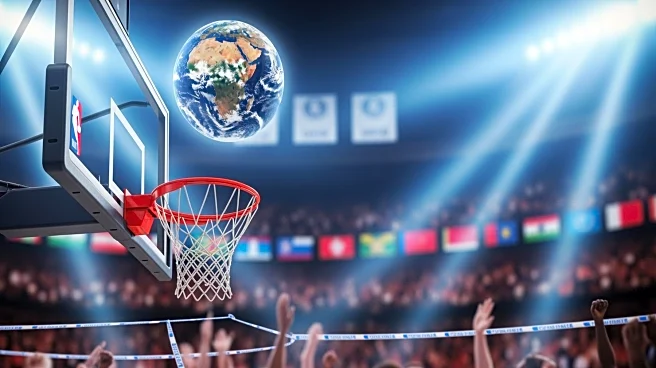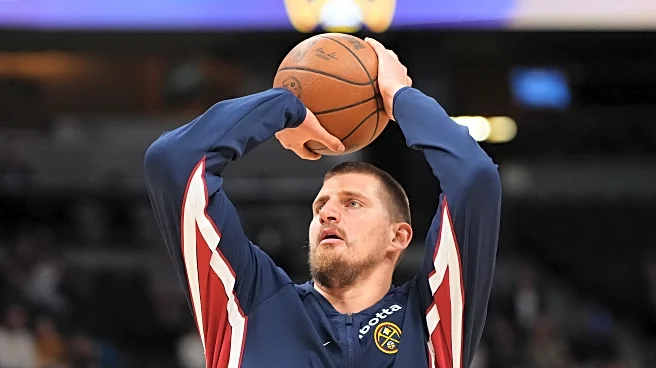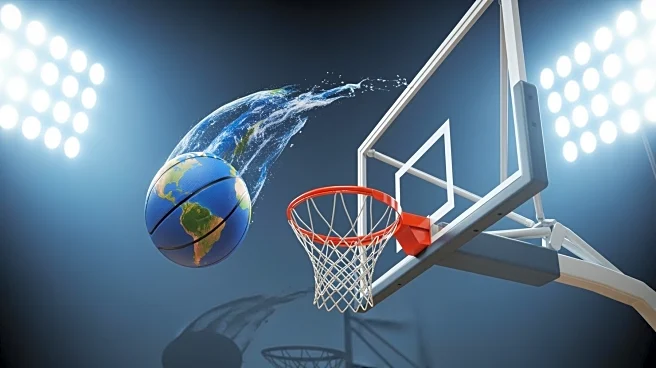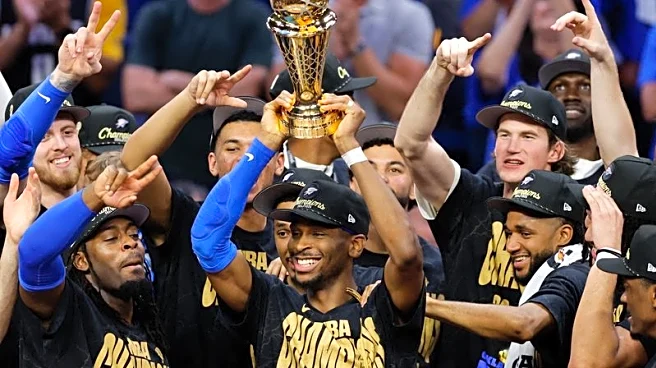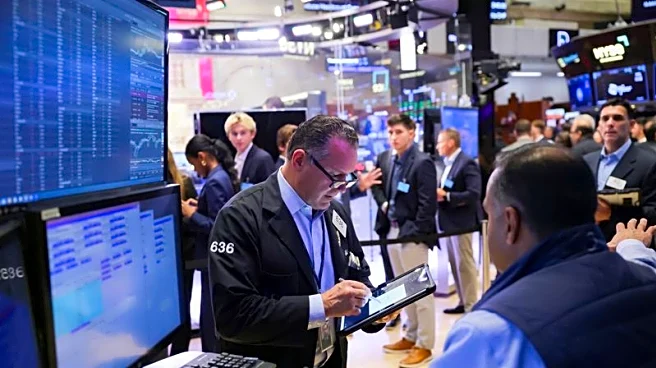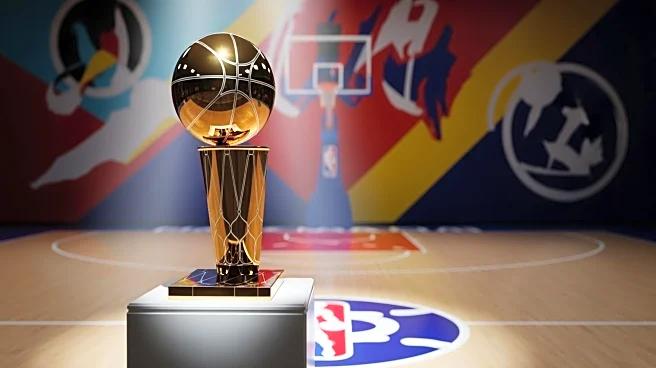What's Happening?
The National Basketball Association (NBA) has announced that a record 135 international players from 43 countries are featured on opening-night rosters for the 2025-26 season. This marks the fifth consecutive
season with at least 120 international players and the 12th straight season with over 100. The record includes 71 European players, with notable names such as Giannis Antetokounmpo, Nikola Jokić, and Luka Dončić. Canada leads as the most-represented country outside the U.S. with 23 players, followed by France and Australia. The Atlanta Hawks have the highest number of international players, with 10 on their roster.
Why It's Important?
The increasing number of international players in the NBA highlights the league's global reach and influence. This diversity enriches the competition and brings varied playing styles and cultural perspectives to the game. It also reflects the NBA's successful international development programs, such as Basketball Without Borders and the NBA Academy. The presence of international stars like Antetokounmpo and Jokić, who have won multiple MVP awards, underscores the global talent pool's impact on the league's competitive landscape. This trend may encourage more international viewership and participation, further expanding the NBA's market and fan base worldwide.
What's Next?
As the 2025-26 season begins, the NBA will continue to engage international audiences through its broadcast partners and NBA League Pass, reaching fans in 214 countries and territories. The league's commitment to global expansion is likely to persist, with potential new initiatives to nurture talent in emerging basketball markets. Teams may increasingly scout international players, recognizing their potential to enhance team performance and marketability. The success of international players could inspire more young athletes worldwide to pursue basketball, potentially leading to even greater diversity in future NBA seasons.
Beyond the Headlines
The rise of international players in the NBA may influence cultural exchanges and collaborations between countries, fostering mutual understanding and respect through sports. It also raises questions about the balance between domestic and international talent development, as teams navigate the complexities of integrating diverse players into cohesive units. The league's global strategy could impact local basketball ecosystems, prompting discussions on how to support homegrown talent while embracing international diversity.
